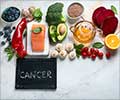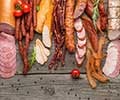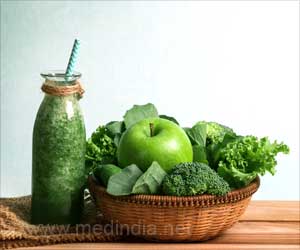- Diet and colorectal cancer- Review of the evidence - (https://www.ncbi.nlm.nih.gov/pmc/articles/PMC2231486/)
- Nutrients, Foods, and Colorectal Cancer Prevention - (https://www.ncbi.nlm.nih.gov/pmc/articles/PMC4409470/)
- Whole grain consumption and risk of colorectal cancer: a population-based cohort of 60 000 women - (https://www.ncbi.nlm.nih.gov/pmc/articles/PMC2362029/ )
- A pooled analysis of alcohol intake and colorectal cancer - (https://www.ncbi.nlm.nih.gov/pmc/articles/PMC4509170/)
- Types and amount of dietary fat and colon cancer risk: Prevention by omega-3 fatty acid-rich diets - (https://www.ncbi.nlm.nih.gov/pmc/articles/PMC2723490/)
- Trans-Fatty Acid Consumption and its Association with Distal Colorectal Cancer in the North Carolina Colon Cancer Study II - (https://www.ncbi.nlm.nih.gov/pmc/articles/PMC2809818/)
Diet and Colorectal Cancer: An Overview
Colorectal cancer also known as colon cancer, bowel cancer or rectal cancer is any cancer that affects the colon and the rectum. They are a part of the large intestine which forms the final stretch of the digestive tract, and helps in removal of waste products and absorption of water and certain nutrients.Colorectal cancer is the third most common cancer worldwide. Studies have reported that diet plays a crucial role in the etiology of colorectal cancer, particularly when a poor diet is combined with excess calorie intake and weight gain, physical inactivity, and unhealthy lifestyle habits like smoking and heavy alcohol consumption which increase risk of cancer.
Therefore, dietary and lifestyle modifications are winning strategies to reduce the incidence of colorectal cancer.











